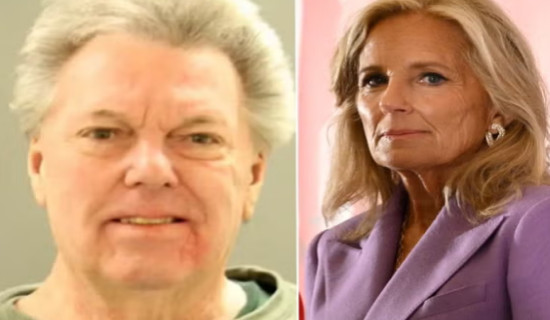- Wednesday, 4 February 2026
A Case Against Cannabis Legalisation
On September 9th, Nepali media extensively covered the exposure of a cannabis smuggling network in Nepal and India. This revelation raises questions about how such illicit activities are carried out so easily, often slipping past the surveillance of authorities. The recent exposé discloses how marijuana is grown in Nepal and trafficked into India, with drug traffickers bribing security officers to facilitate the trade. For the general public, especially those raising children, this exposure is deeply concerning, as policymakers are considering the legalisation of cannabis. The involvement of security officers and high-level politicians in protecting smugglers prompts critical questions: What is the real motive behind legalising cannabis in Nepal?
According to a report ‘Current Status of Cannabis Legalisation and Decriminalization Efforts in Nepal’ (7 September 2024), co-authored by Nabin Pathak from the Drug Information Unit and Pharmacovigilance Cell, Department of Pharmacy, Hetauda Hospital, and the Madan Bhandari Academy of Health Sciences, Nepal has a unique cultural value system that shapes its perspective on cannabis use. Narcotic Drugs Control Act- 1976 prohibits the cultivation, production, sale, and distribution of narcotic drugs, including various forms of cannabis.
Decriminalisation
Nabin Pathak and his team explain that cannabis legalisation involves a system where the production and sale of cannabis are no longer considered criminal activities, but are regulated by specific laws. Decriminalisation, on the other hand, refers to the removal of criminal sanctions against certain actions or behaviours. In the case of cannabis, decriminalisation would keep it legal, except for possession within a specified amount. The 1961 UN Convention openly discussed the harmful effects of cannabis on health, while opposing groups emphasised that cannabis is far less addictive and harmful than many prescription medicines. Pathak and his team also mention concerns about whether legalising cannabis would be more beneficial for recreational use than for medicinal purposes. They highlight the risk of black market access for medical cannabis, warning that the line between medicinal and recreational use could blur over time.
With growing support for cannabis legalisation, it is crucial to analyse the experiences of other countries where production and sale of cannabis has been legalised. Nepal’s policymakers must make informed decisions based on evidence and facts regarding cannabis regulation. Despite the police officers in both Nepal and India regularly arresting drug traffickers, the trade continues to grow. Media reports indicate that in July of this year, Akhtar Shah, who heads the village of Bakhri Panchayat in Bihar’s Motihari district, was arrested with 131 kilograms of marijuana near the Nepal-India border. In August, Nepal Police arrested Fulsharif Miya in Nepal’s Parsa district with 200 kilograms of hashish and marijuana powder, which was ready to be smuggled across the border. Miya, a well-known figure in the narcotic trade, had been on the “wanted” list of both Nepali and Indian police for years.
His gang has been actively transporting cannabis from production sites in Nepal’s forests to India. In June, Nepal police seized a truck with an Indian license plate in Bara district carrying 270 kilogrammes of marijuana, en route from Nepal to India. Reports suggest that Shah, when interrogated by the Indian police, admitted to smuggling marijuana from Nepal to India for years, with the support of Nepali smugglers and local security officers. Further investigation found that Shah had connections with political figures and senior police officers in Nepal. This proves that large-scale narcotics trafficking is often protected by high-ranking officials with political nexus.
These cases illustrate that while committed officers on both sides of the border are working to end this trade, corrupt officers are obstructing their efforts, allowing the trafficking to thrive. This writer recalls a personal experience in the mid-1990s when she attended the first conference on forming a code of ethics for journalists, organised by the Federation of Nepali Journalists in Birgunj. While exploring Birgunj, I discovered that marijuana smuggling across the border was a serious issue. With the help of Nepali and Indian police, I wrote an investigative report exposing the smuggling network. Back then, it was termed "drug smuggling," but today, it falls under the broader definition of "drug trafficking."
Medicinal value
According to the World Health Organisation (WHO), around 147 million people worldwide consume cannabis, accounting for more than 2.5 per cent of the global population. Cannabis sativa has a long history of human use for medicinal, shamanic, and recreational purposes. Over time, its versatility has increased due to its many chemical constituents, making it valuable for both health-related and non-health-related applications. The cannabis plant contains around 570 different chemicals, with the most important being Tetrahydrocannabinol (THC) and Cannabidiol (CBD). THC has psychoactive effects, while CBD has more of a relaxing effect. Research has shown that higher levels of THC are associated with abuse potential.
Although cannabis has medicinal properties, it can also be abused. If addiction takes hold, it can ruin the lives of not only the addicts but also their families and communities. Therefore, before the government legalises cannabis, thorough research is needed to understand the therapeutic benefits and risks of CBD and THC. The government must consider more than just the potential monetary benefits of legalising cannabis. The mental and physical health of the population should be the top priority. If legalisation is pursued, the government must implement strict policies to regulate trade, prevent adulteration, and curb smuggling, especially given the open border with India.
(Sharma is a senior journalist and women's rights advocate. namrata1964@yahoo.com. Twitter handle: @NamrataSharmaP)

















